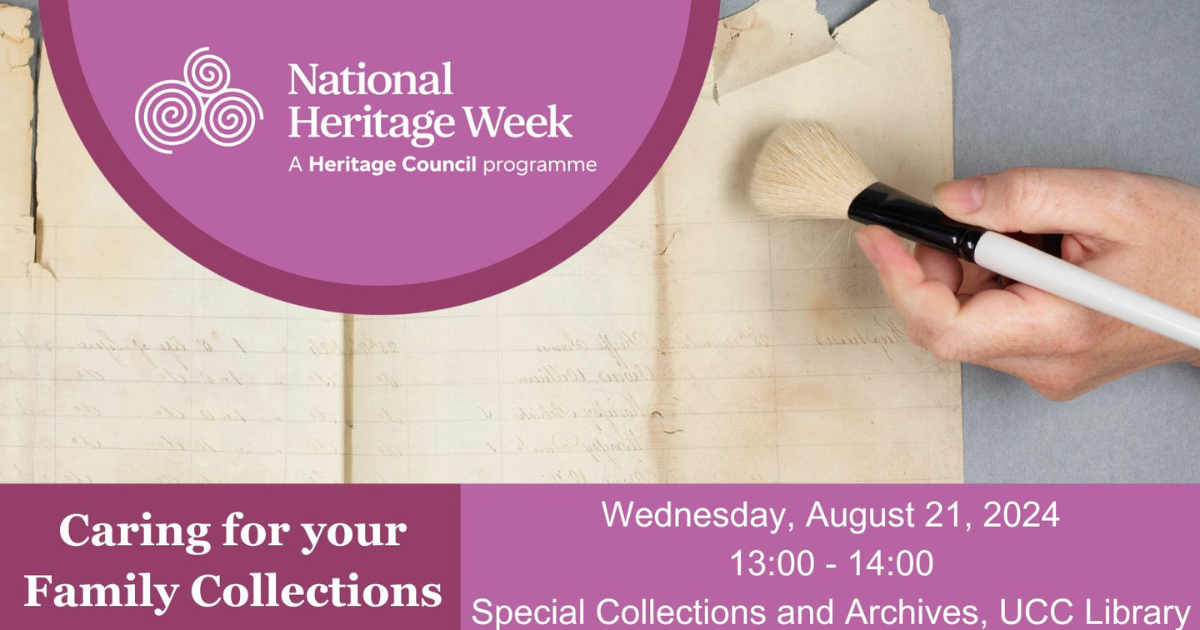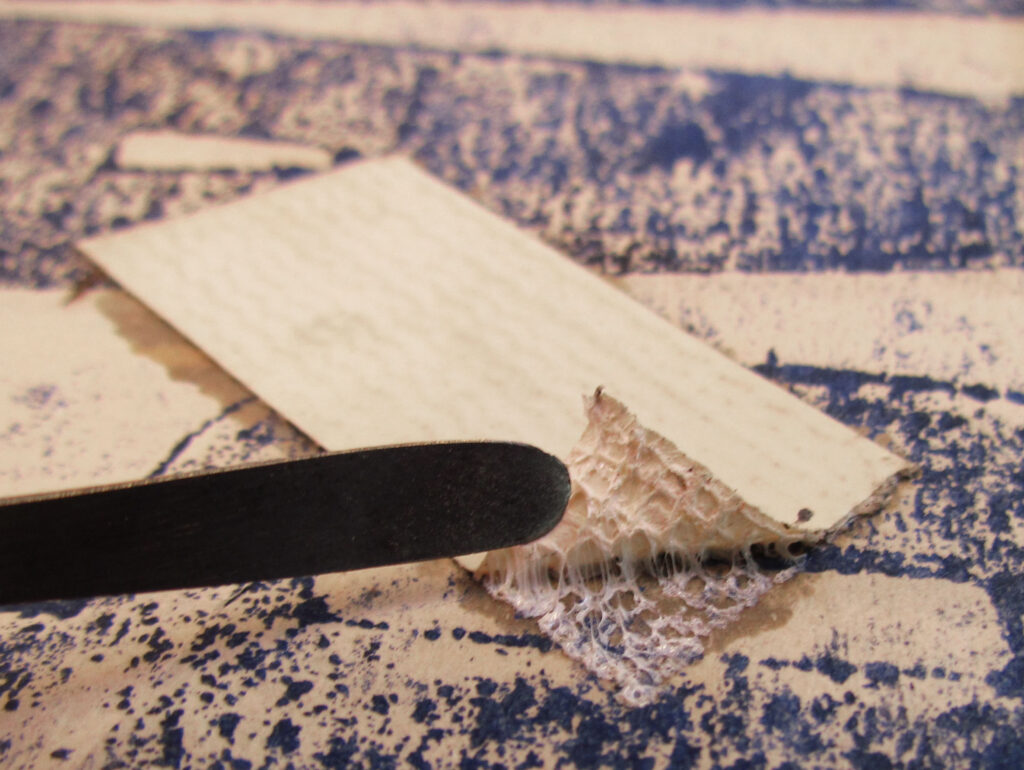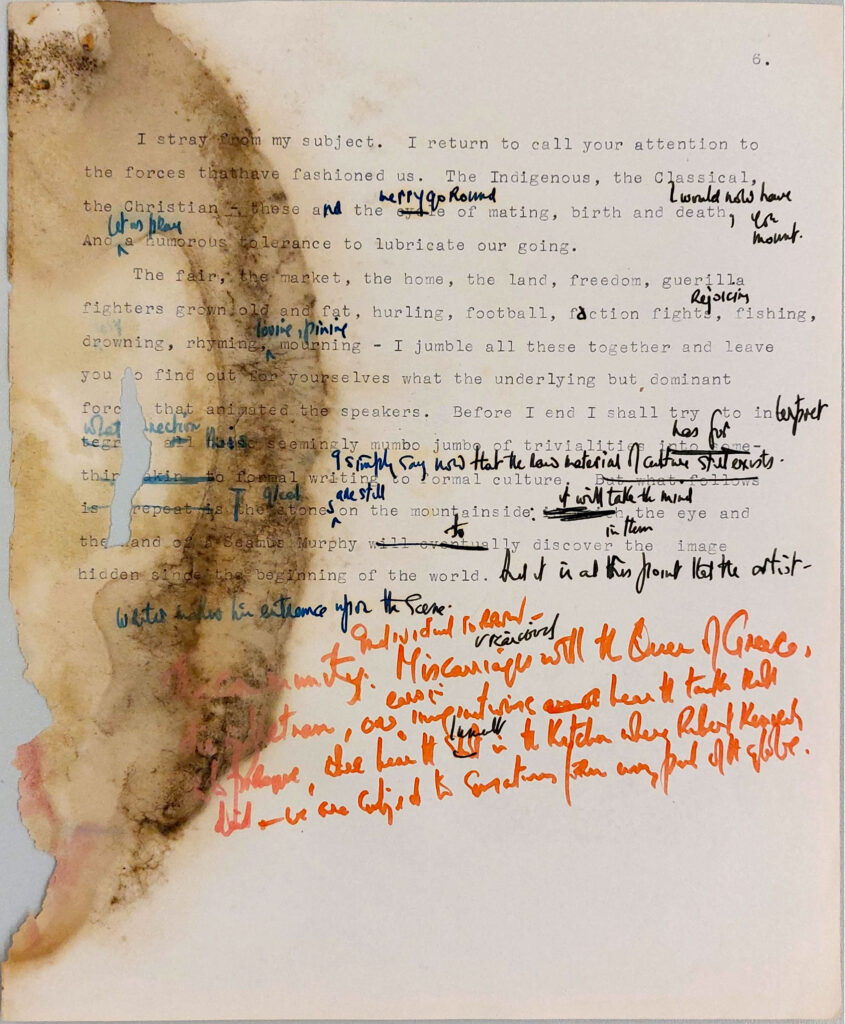
For most of us, paper is an everyday, throw-away thing. We may hang on to precious letters, old photographs or important certificates. And what if you had to keep all the things forever? But what if you’re the family historian or an avid comic collector, and wondering how to safeguard your collections for future generations?
As part of Heritage Week 2024, a free workshop on ‘Caring for your Family Archives’ takes place on Wednesday 21 August, in Boole Library, University College Cork. Register here – all are welcome, As a preview, here are top 3 tips on caring for your family archives, from Special Collection and Archives conservator.
No sticky tape

Paper isn’t built to last forever. If something is torn, don’t repair it yourself. Tape might ‘fix’ your paper documents temporarily, but it’s harmful in the long run. Everyday tapes contain problematic adhesives for long-term preservation. These are typically rubber-based, which degrade quickly. The aged crispy toffee-coloured adhesive will hide text and stick to the paper’s fibres. Within about 20 years, the adhesive can turn the paper acidic and transparent, eventually causing the paper to crack and break apart.
Avoid using tapes and glues marketed as ‘archival’ as they may not be reliable. If an item needs repair, always consult a conservator. Save the tape for wrapping presents!
Location is key

Paper is extremely sensitive to ambient temperature and humidity. Water can seriously damage paper collections, and even damp places can cause mould to grow on your archives. So don’t store precious items in sheds, attics, or basements. Chose a consistently cool, dry location away from direct sunlight or heat sources like radiators or chimneys.
Next, box your items to protect them from the elements; it’s simple but effective. Boxing will also protect your archives from dust, which can eventually stick to paper fibres.
However, not just any cardboard box will do. Normal stationery supplies are not suitable for long-term storage. They are made from wood pulp paper that can create an acidic micro-climate. Your paper archives can absorb the acids, speeding up its degradation. Ideally, your box should be acid-free, lignin-free, and have an ‘alkaline buffer’ for permanent ‘archival’ storage. If you’re tight on resources, then use non-bleached, acid-free, lignin-free artist card to make your own folders to store your collection within.
Lights out
Have you noticed a faded photograph on your mantelpiece or a washed-out poster on the wall? Excessive light exposure will permanently fade colours and accelerate the natural ageing of paper, making it yellow and more acidic. Light damage is irreversible, as damaging wavelengths change the chemical composition of paper and colours.
To protect your most treasured documents or photographs, avoid framing and displaying them indefinitely. Instead, take a photograph of the item and display the print-out copy, or use the copy for reading. This way, the original can be preserved away from the light.
Intrigued?
Want to learn about smelly plastics, rusting staples and dangers of white gloves?
Register now to join our free workshop. It’s a unique opportunity to learn how to care for our fragile heritage in the distinct surroundings of UCC’s rare books reading room.
